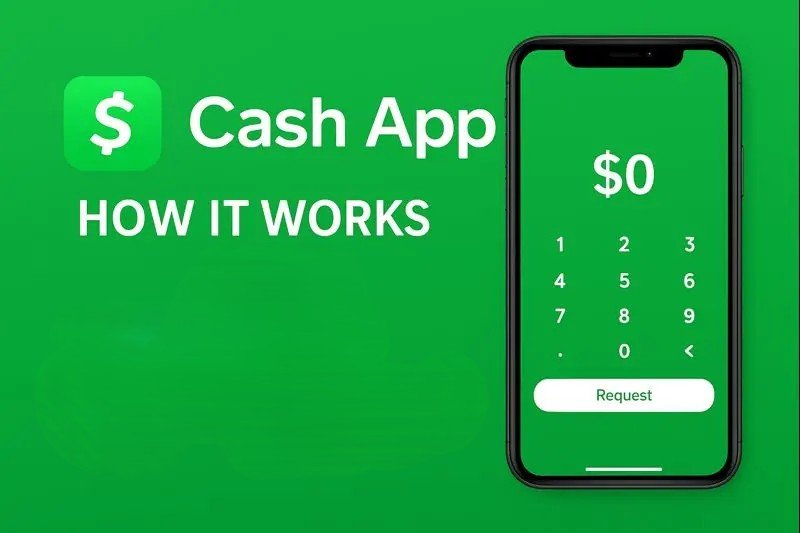What Is Cash App and How Does It Work in 2025?
Cash App is a popular mobile payment service developed by Block, Inc. (formerly Square). It allows users to send, receive, spend, invest, and manage money directly from their smartphones, making it one of the most widely used peer-to-peer payment apps in the United States.
How to Get Started with Cash App
- Download and Sign Up
- Install Cash App on iOS or Android.
- Create an account using your phone number or email address.
- Link a bank account or debit card.
- Verify Your Identity
- Provide your full legal name, date of birth, and Social Security Number (SSN).
- Verification unlocks higher limits and additional features.
- Send and Receive Money
- Use a $Cashtag, phone number, or email address.
- Transfers between Cash App users are instant and free.
Cash App Card: Spending and ATM Access
Users can request a free Cash App Card, a customizable debit card linked to their Cash App balance.
Key benefits:
- In-store and online purchases
- ATM withdrawals
- Boosts (instant discounts at select merchants)
📌 FDIC insurance applies only after activating the Cash App Card, through partner banks.
Additional Cash App Features
Investing with Cash App
Cash App allows users to:
- Buy and sell stocks (including fractional shares)
- Buy, sell, and hold Bitcoin
This makes Cash App appealing to beginners interested in simple investing tools.
Cash App Taxes
Cash App Taxes offers free federal and state tax filing in the U.S. The service is especially useful for:
- Freelancers
- Gig workers
- Users with simple tax situations
It can automatically import income data from your Cash App transactions.
Borrowing Money with Cash App
Some eligible users can access Cash App Borrow, allowing short-term loans:
- Borrow up to $200
- Typical repayment period: 4 weeks
- Standard fee: around 5%, with additional charges if extended
⚠️ Availability depends on account activity and payment history.
What Are the Downsides of Cash App?
While Cash App is convenient, it has several limitations users should consider.
Key Disadvantages
- Limited Fraud Protection: Payments are instant and usually irreversible, making scams difficult to dispute.
- Fees for Certain Services: Instant deposits and ATM withdrawals can be costly.
- Partial FDIC Coverage: Only funds connected to the Cash App Card are insured.
- Customer Support Issues: Support is mainly handled through in-app chat, which some users find slow.
Cash App Fees Explained (Per $100)
| Transaction Type | Fee |
|---|---|
| Standard Bank Transfer | Free (1–3 business days) |
| Instant Deposit | 0.5%–1.75% (minimum $0.25) |
| Credit Card Payment | 3% |
| ATM Withdrawal | ~$2–$3 (unless reimbursed) |
Example: Sending $100 via credit card results in a $3 fee.
Who Is Cash App’s Partner Bank?
Cash App partners with Lincoln Savings Bank and other regulated institutions to provide banking services. Once the Cash App Card is activated, eligible balances are FDIC-insured up to $250,000.
Funds not linked to the card may not receive the same protection.
Cash App Login & Security Tips
Protecting your Cash App account is essential.
Best security practices:
- Enable two-factor authentication (2FA)
- Never share your PIN or verification codes
- Be cautious with unsolicited messages or payment requests
- Monitor transactions and report suspicious activity immediately
Cash App Settlement Update (2024–2025)
In 2024, Block, Inc. agreed to a major settlement related to claims involving Cash App Taxes and Cash App Card disclosures.
Settlement Overview
- Who may be eligible: Certain users who used Cash App tax or card services during earlier years
- Status: Claims processing and payouts continued into late 2024 and 2025, subject to court approval
- How to check eligibility: Users must visit the official settlement website and submit required documentation
📌 Always rely on the official settlement site for accurate payout dates and claim status updates.
Final Verdict: Is Cash App Worth Using in 2025?
Cash App remains a fast and flexible payment platform in 2025, especially for everyday transfers, small investments, and basic financial management.
Pros
- Fast peer-to-peer payments
- Free standard transfers
- Built-in investing and tax tools
Cons
- Limited buyer protection
- Fees for instant services
- Customer support limitations
For large transactions or business use, it may be wise to compare alternatives such as Venmo, Zelle, or PayPal.
Frequently Asked Questions (FAQs)
Is Cash App safe to use in 2025?
Yes, when basic security practices are followed, but users should stay alert to scams.
Does Cash App charge fees?
Standard transfers are free, but instant deposits and credit card payments incur fees.
Is Cash App FDIC insured?
Only funds linked to an activated Cash App Card are FDIC insured through partner banks.
Is there a Cash App settlement payout date?
Payout timing depends on court approval and claim processing; users should check the official settlement website.
Related Keywords: Cash App review, Cash App fees, Cash App settlement, Cash App login, Cash App Taxes, Cash App Borrow


Exactly the information I was looking for.